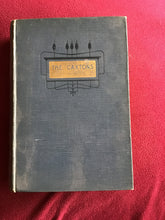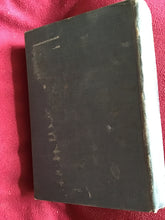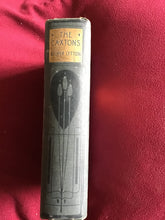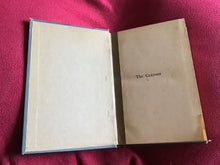
Used good.
Dated 1903 Blackie and Son
INTRODUCTION
Edward George Earle Lytton Bulwer-Lytton, one of the
most versatile men in English or any other literature, was
born in London on May 25, 1803. Both his parents came of
ancient families of distinetion. His father was William Earle
Bulwer of Heydon Hall, Norfolk, who was one of the four
generals entrusted with the defence of the kingdom in 1804,
when invasion was expected. His nother, Elizabeth Barbara
Lytton, was the only child of Richard Warburton Lytton of
Knebworth, Hertfordshire, a somewhat eccentric scholar who
is partly represented by the elder Caxton in The Caatons.
General Bulwer died in 1807, and his widow thereupon re-
moved to London 1zith her three sons, of whom the future
novelist was the youngest. He was sent to sehool at Fulham
and Rottingdean (Sussex), and showed remarkable precocity.
When only seventeen years of age he published a volume of
verse under the title Ismael, and other Poems. A love affair
in which he was thwarted at this time appears to have made
a deep impression on his mind. In 1822 he entered Trinity
College, Cambridge, but he soon transferred himself to Trinity
Hall, from which be graduated in 1826. He was a leading
debater in the Union, and in 1825 he won the chancellor's
After a short period of aim-
less wandering and firtation, he married, in 1827, Miss Roina
Doyle Wheeler, an Irish beauty, niece of General Sir John
Doyle. The mateh displeased his mother, upon whom he
depended for finaneial support, and he was thus led to seek a
prize for a poem on Seulpture.
living by his pen.
Palkland, his first novel, appeared in 1827, and with
Pelham, which was issued in the following year, he attained









